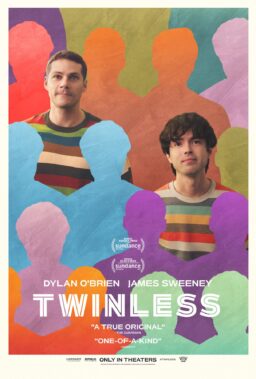They wuz robbed.
Filmmakers Joe Berliner and Bruce Sinofsky sit in a Chicago hotel room and look rueful, as if someone had just snatched an Academy Award nomination out of their hands.
Someone had: The academy’s inept documentary selection committee, to be exact. When this year’s Oscar nominations were announced, “Brother's Keeper,” by Berliner and Sinofsky, was not on the list.
So what, you say? A lot of films don’t get nominated.
True. But “Brother’s Keeper” was the best documentary of 1992. I think so, and so do a lot of other people, including the Directors Guild of America, which named it the best-directed documentary, and the New York Film Critics Circle, which picked it as the year’s best documentary.
The movie (which opens here Friday at the Music Box) tells the story of a central New York community that united behind an elderly farmer accused of murdering one of his brothers. It is the kind of film that makes fiction seem pale by comparison, and it builds to a dramatic courtroom climax that makes “A Few Good Men” look like a Perry Mason episode.
But the academy did not nominate it.
This is getting to be an old story. Year after year, the 45 volunteers on the academy’s documentary selection committee consistently fail to nominate the best documentary of the year.
It’s almost like a tradition. Consider that these earlier documentaries also were not nominated: “35 Up,” the latest episode longest-running documentary series in history, which revisits the same group of Britons every seven years; “Roger & Me,” Michael Moore’s box-office hit about his vendetta against GM’s Roger Smith; “The Thin Blue Line,” the Errol Morris documentary that freed a Texan from Death Row; “Hearts of Darkness: A Filmmaker's Apocalypse” the passionate backstage look at the filming of “Apocalypse Now.”
What’s going on here?
To begin with, understand that the American documentary film community hates the academy’s selection process and mounts annual campaigns against it. Most years, petitions are circulated, and documentarians raise their voices in protest.
“The problem with the committee,” Sinofsky explained to me, “is that of the 45 people on it, only 15 of them actually have any documentary experience. Allegedly. Which means two-thirds of this group are retired academy members who have free time in November, December, January to watch 88 features and 30 shorts. And that’s really the only qualification for these people – they have the free time.”
Other academy nominations are made by peer groups. Actors nominate actors, and so on. But there is no documentary branch of the academy, and the academy doesn’t want one.
I understand there are two reasons: (1) They don’t want to let in a lot of strangers whose votes might sway such commercial categories as best film, and (2) They secretly wish documentaries would simply go away, and stop clogging up the Oscarcast with a category that the Hollywood establishment views with aloof indifference.
Reason No. 1 is the real reason the academy has brazened out the annual scandals over the poor quality of the documentary selection process. Documentary filmmakers are seen as non-commercial outsiders who might, as a group with 50 or 60 members, actually swing a few categories in the direction of more unconventional films.
“We’re the bastard child of the film industry,” Berlinger said. He and Sinofsky would like to see a documentary branch established. They would also like the academy’s rules changed to reflect a more realistic definition of what a documentary is. Currently, a doc “feature” need only be 30 minutes long. If this were stretched to an hour or even 80 minutes, bona-fide feature-length documentaries would be isolated from shorter films that monopolize the committee’s time.
Not that the committee members always take that much time on a film. “We understand they use flashlights,” Berlinger told me. “One guy flashes his light, that’s one vote. When enough flashlights are on, they stop the film.”
In the meantime, Sinofsky and Berliner are hurting because of the lack of a nomination. They financed their film themselves, on credit cards and credit. They are releasing it themselves. It has received overwhelmingly enthusiastic reviews, and will gross perhaps $1 million – spectacular for a doc.
“But we’ve lost about 25 percent of our potential gross because of the Oscar thing,” Sinofsky said. “One chain of four theaters canceled a booking the day the Oscars were announced.”
Of course, nobody is saying “Brother’s Keeper” has a right to be nominated.
Just that it, and all documentaries, have a right to be judged by a group of qualified professionals, not by a roomful of retired volunteers who over the years have compiled an appallingly erratic track record.











